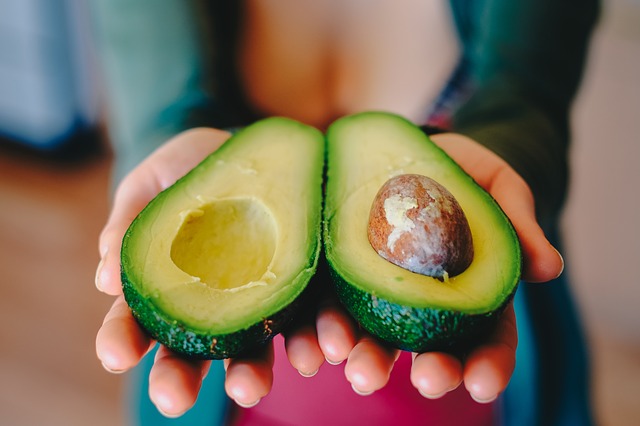July 31, 2018
Apeel Sciences announced $70 million in new funding led by Viking Global Investors and including Andreessen Horowitz, Upfront Ventures, and S2G Ventures, among other unnamed participants. Additionally, under the parameters of the financing, Walter Robb, former co-CEO of Whole Foods, will join Apeel Sciences’ Board of Directors.
Founded in Santa Barbara, California, in 2012 by James Rogers, a PhD graduate of the University of California, Santa Barbara, with a grant from the Bill & Melinda Gates Foundation, Apeel Sciences’ technology works to reduce food waste before it begins.
Across the U.S. market alone, the retail sector generates 8 million tons of waste per year through distribution centers and stores, representing a loss of $18 billion. In addition, U.S. households throw away more than 400 pounds of food per person per year, losing an average household of four $1,800 annually, according to Apeel.
To combat these numbers, the company has developed a method for extracting molecules from organic agricultural waste and byproducts – such as grape skins that remain after wine production processing or banana peels, leaves, or stems left over after harvesting – to create undetectable edible barriers derived from natural plant extracts. These barriers significantly slow the process of decay of fresh produce, making each piece of fruit its own microclimate and extending shelf life without refrigeration, a controlled atmosphere, or preservatives.
“We’re not making fruits and vegetables any better,” Apeel CEO James Rogers told Bloomberg. “We’re just maintaining that natural quality.”
Working under the knowledge that spoilage is caused by oxidation and water loss, the coating, which can be easily washed away with water, protects fruit and vegetables through controlling the rate at which water and gasses enter, or are released by produce. This effectively makes obsolete the use of gas, wax, or other techniques currently used in the industry in the attempt to keep produce fresher longer.
“A great next generation entrepreneur has come along using food itself to naturally extend the life of food, heralding a new era of possibility and promise,” said Walter Robb, former co-CEO of Whole Foods Market. “James and the team at Apeel Sciences are amazing and I am truly excited to be part of their efforts.”
Hitting the Market
To date, Apeel Sciences has developed products that can extend the shelf-life of more than three dozen crops including peaches, asparagus, lemons, pears, nectarines – and avocados, which have been shown to have a shelf life that is double that of avocados without the benefit of Apeel’s technology.
In June the company achieved a major commercialization win, with the introduction of Apeel avocados at Costco and Harps Food stores (in May) in the U.S. Since the launch, Harps has seen a 65 percent increase in margin and a 10 percent increase in sales of its haas avocados reflecting the monetary benefit that Apeel Sciences’ technology can have on a fresh food retailer’s bottom line.
“As Apeel products continue to hit the shelves, the retail world is now beginning to experience what was clear from day one, which is that Apeel is a product with the potential to change the world,” said Yves Sisteron, founder and managing partner of Upfront Ventures, which first invested in Apeel Sciences in 2014. “We’ve been continually impressed with the scientific innovation coming from James Rogers and the Apeel Sciences team, and we’re thrilled to continue supporting them on their mission.”
A Wide Eye
Apeel’s ability to slow decay and reduce food waste is only one draw factor for investors in the company. Taking a wider view, it becomes evident that the potential within Apeel’s technology for change and disruption of global food systems runs deeper than first thought.
Due to economic pressures inherent within the food production industry paired with the limitations of existing logistics, the most popular varieties of fruit and vegetables available in markets today have been bred for their ability to hold up through sometimes extended periods of transportation, not for flavor or other gratifying characteristics.
Apeel’s technology will be able to expand and widen the range of foods available to consumers on a year-round basis, while also reducing the need for pesticides and refrigeration and easing the overall environmental impact of agricultural production.
It also will enable organic produce, which once was unable to be shipped to certain overseas markets due to its perishable nature, to be sold to a wider range of buyers.
And, the application goes beyond answering the challenges faced mainly in more developed retail value chains. After being awarded $100,000 from the Bill and Melinda Gates Foundation in 2012, the foundation used Apeels’ Edipeel product to more than double the shelf life of cassava root – a widely produced crop across Africa and a main source of calories. Once harvested, cassava must be eaten or processed within 48 hours before it rapidly spoils – a fact that has limited African smallholder farmers from being able to commercialize their crops. This ability to extend the life of cassava and enabling commercialization has the potential to lift the market value of the crop by $1 billion in Nigeria alone, according to Apeel.
-Lynda Kiernan

Let GAI News inform your engagement in the agriculture sector.
GAI News provides crucial and timely news and insight to help you stay ahead of critical agricultural trends through free delivery of two weekly newsletters, Ag Investing Weekly and AgTech Intel.




